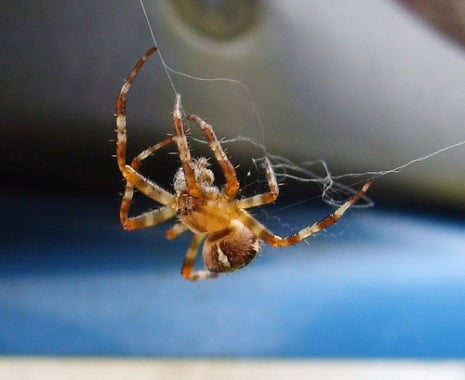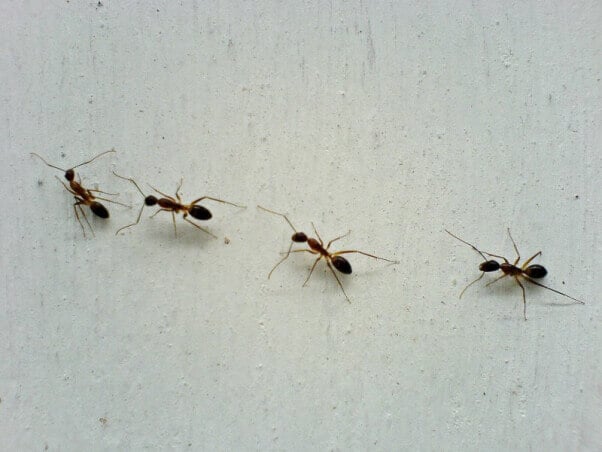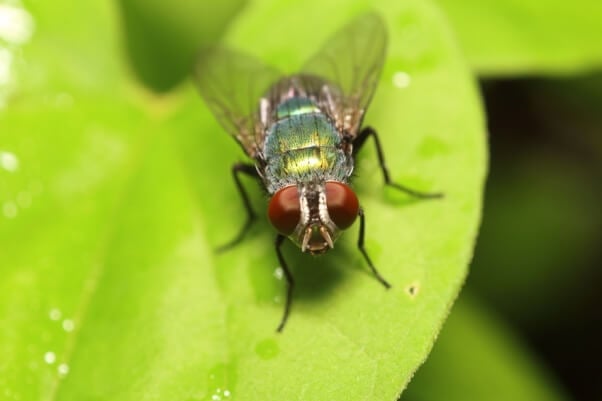At this time of year, it’s not unusual to find ants in your pantry or beetles in your basement. While our fear of creepy crawlies can drive us to want to kill, kill, kill, before you reach for the bug spray or rolled-up newspaper, consider that such lethal methods are both cruel and ineffective. (For starters, we’re vastly outnumbered—more on that in a minute.) We can—and should—resolve conflicts with troublesome bugs humanely.

I’m not saying that you should live with flies in your fruit bowl. But get over the idea that you can ever be completely bug-free. According to Nancy L. Brill, who was part of a team of entomologists that studied the types of bugs that inhabit our houses, “What most of us don’t know is that our homes are filled with a profusion of insects and their relatives, collectively called arthropods, most of which we never see.”
As Brill describes in a recent New York Times commentary, she and her colleagues from North Carolina State University and the North Carolina Museum of Natural Sciences collected more than 10,000 specimens of insects, both dead and alive, in just 50 houses in the Raleigh, North Carolina, area. As many as 100 or more different species of arthropods were often found living under a single roof. You read that right.
The team found spiders and stink bugs, moths and millipedes. More than 90 percent of the homes had gnats, ants, and book lice (who harmlessly munch on mildew from old paper), and most homes had dust mites. The residents of many of the homes included in the study sprayed regularly to kill bugs. Yet, says Brill, “no homes were bug-free. Far from it.”
The good news is that most of these bugs are benign, and some are even beneficial. For example, as Brill points out, carpet beetle larvae help keep our homes tidy by eating dead insects and spilled food. Dust mites dispose of the dead skin cells in our beds.

But whether we consider them “useful” or not, insects play a vital role in the larger ecosystem, and killing them off (if that were even possible) would have far-reaching consequences.
Consider the much-maligned cockroach. Entomologist Coby Schal says that roaches “get a bad rap from the 1 percent of cockroach species that infest our homes.” The vast majority of cockroaches “have huge ecological importance.”
Forest-dwelling cockroaches break down leaf litter and other organic materials that mammals can’t digest—helping to prevent the woods from becoming buried in decaying matter. Some species of roaches are pollinators. Others are important food sources for birds and small mammals.

Insects are also smarter than most of us give them credit for—and they may be able to feel pain. Ants use “math” to find the fastest path from one point to another. Social spiders who live in colonies have distinct personalities: Some are shy, whereas others are more aggressive. Researchers have used computer simulations to show that, even with their tiny brains, insects have enough neural circuits to possess consciousness. And one study found that ants and other insects have the same chemical in their bodies that’s known to transmit pain in humans.
The toxic chemicals that kill bugs can also harm us, so try these kinder methods of coping with errant insects: To repel flies, hang clusters of cloves in a room or leave out an orange peel. Squeeze lemon juice along ants’ entry point—they won’t cross over it. Cockroaches are opportunistic, so seal food in airtight containers and remove roaches’ hiding places (such as piles of papers), then scatter crushed bay leaves or catnip around your home to repel them. Mosquitoes can be kept at bay with basil plants—they dislike the smell.
All beings, no matter how small, are connected in a circle of life. Let’s include them in our circle of compassion as well.
Text VEG to 73822 to get the latest vegan lifestyle tips, recipes, and urgent action alerts texted right to your phone.
Terms for automated texts/calls from PETA: https://peta.vg/txt. Text STOP to end, HELP for more info. Msg/data rates may apply. U.S. only.







